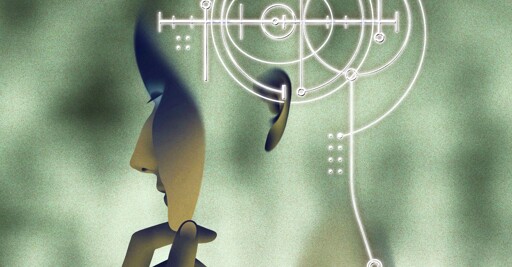If this is the way to superintelligence, it remains a bizarre one. “This is back to a million monkeys typing for a million years generating the works of Shakespeare,” Emily Bender told me. But OpenAI’s technology effectively crunches those years down to seconds. A company blog boasts that an o1 model scored better than most humans on a recent coding test that allowed participants to submit 50 possible solutions to each problem—but only when o1 was allowed 10,000 submissions instead. No human could come up with that many possibilities in a reasonable length of time, which is exactly the point. To OpenAI, unlimited time and resources are an advantage that its hardware-grounded models have over biology. Not even two weeks after the launch of the o1 preview, the start-up presented plans to build data centers that would each require the power generated by approximately five large nuclear reactors, enough for almost 3 million homes.



It’s a great article IMO, worth the read.
But :
This is such a stupid analogy, the chances for said monkeys to just match a single page any full page accidentally is so slim, it’s practically zero.
To just type a simple word like “stupid” which is a 6 letter word, and there are 25⁶ combinations of letters to write it, which is 244140625 combinations for that single simple word!
A page has about 2000 letters = 7,58607870346737857223e+2795 combinations. And that’s disregarding punctuation and capital letters and special charecters and numbers.
A million monkeys times a million years times 365 days times 24 hours times 60 minutes times 60 seconds times 10 random typos per second is only 315360000000000000000 or 3.15e+20 combinations assuming none are repaeated. That’s only 21 digits, making it 2775 digits short of creating a single page even once.
I’m so sick of seeing this analogy, because it is missing the point by an insane margin. It is extremely misleading, and completely misrepresenting getting something very complex right by chance.
To generate a work of Shakespeare by chance is impossible in the lifespan of this universe. The mathematical likelihood is so staggeringly low that it’s considered impossible by AFAIK any scientific and mathematical standard.
The quote is misquoting the analogy. It is an infinite number of monkeys.
The point of the analogy is about randomness and infinity. Any page of gibberish is equally as likely as a word perfect page of Shakespeare given equal weighting to the entry if characters. There are factors introduced with the behaviours of monkeys and placement of keys, but I don’t think that is the point of the analogy.
In the meantime weasel programs are very effective, and a better, if less known metaphor.
Sadly the monkeys thought experiment is a much more well known example.
Irrelevant nerd thought, back in the early nineties, my game development company was Monkey Mindworks based on a joke our (one) programmer made about his method of typing gibberish into the editor and then clearing the parts that didn’t resemble C# code.
That’s how they made that ET game back in the day
C# didn’t exist in the early 90s, perhaps you’re thinking of another language?
Obligatory: 95% of paint splatters are valid perl programs
I hear you. My fucking dog keeps barking up stupid Mexican novellas and Korean pop. C’mon Rosco! Go get me the stick buddy! The stick! No! C’mon! The cat didn’t kill your father and then betray you for the chicken!!! Nobody likes your little dance that you do either, you do it because you sick in the brain for the Korean Ladies! Get otta here!